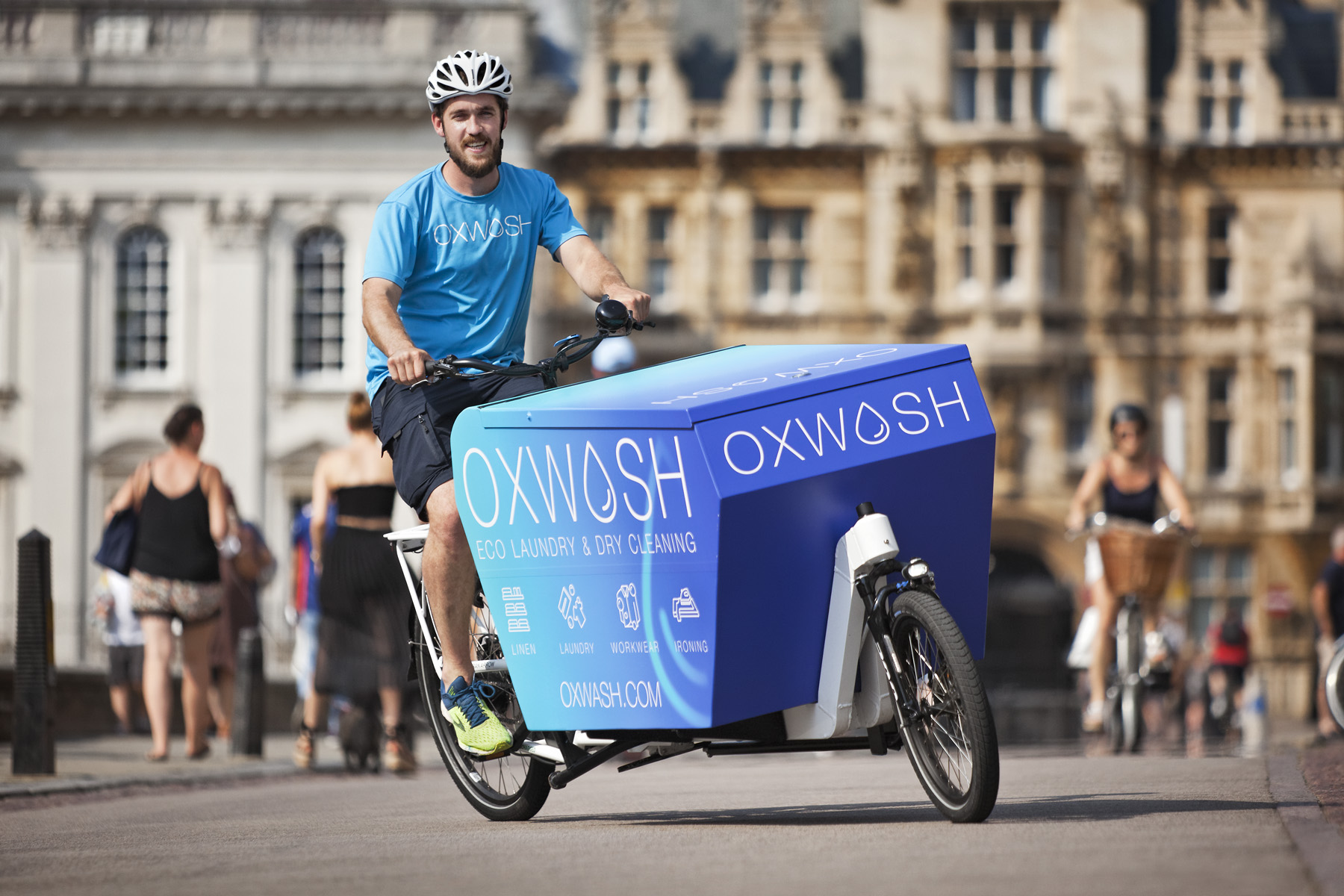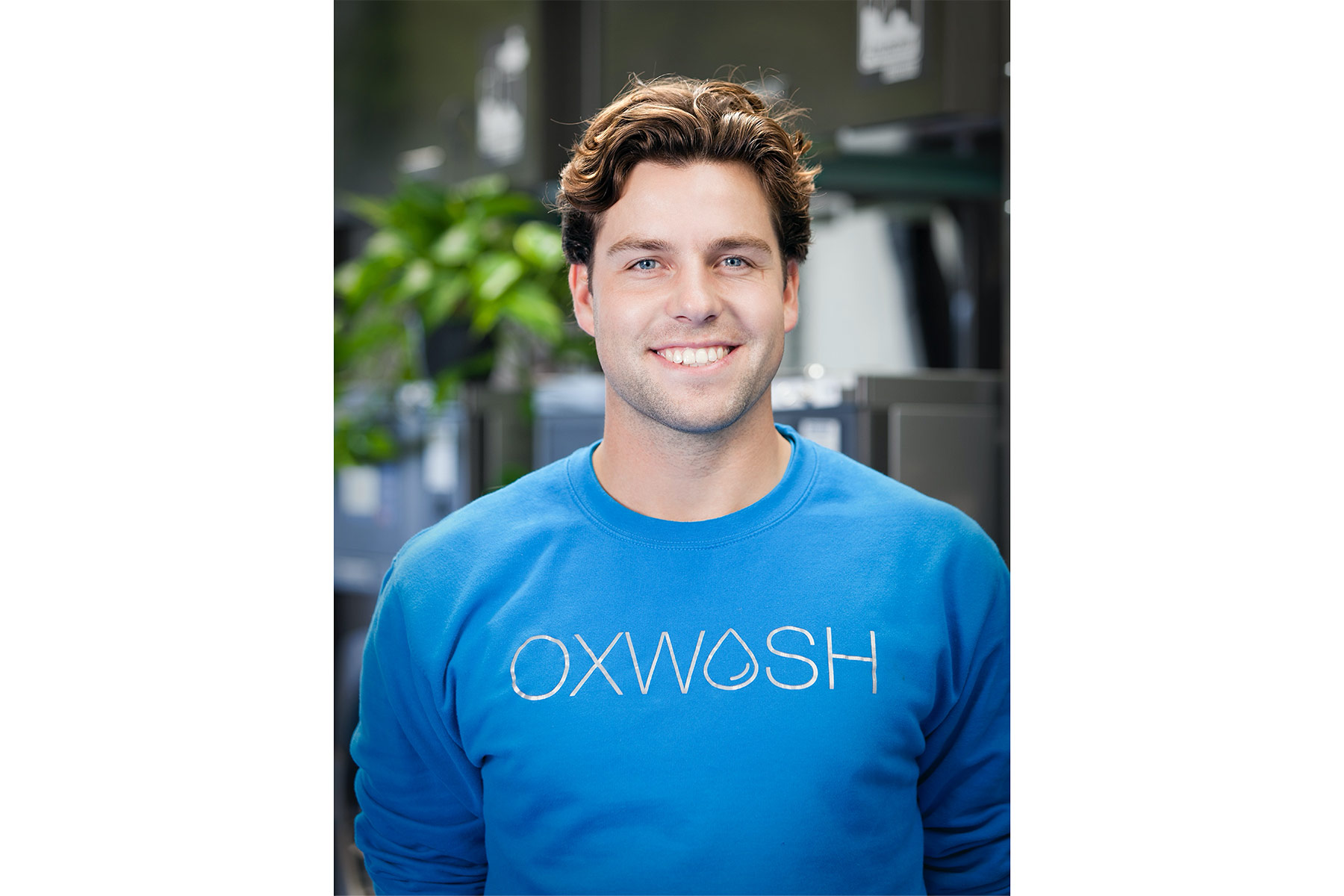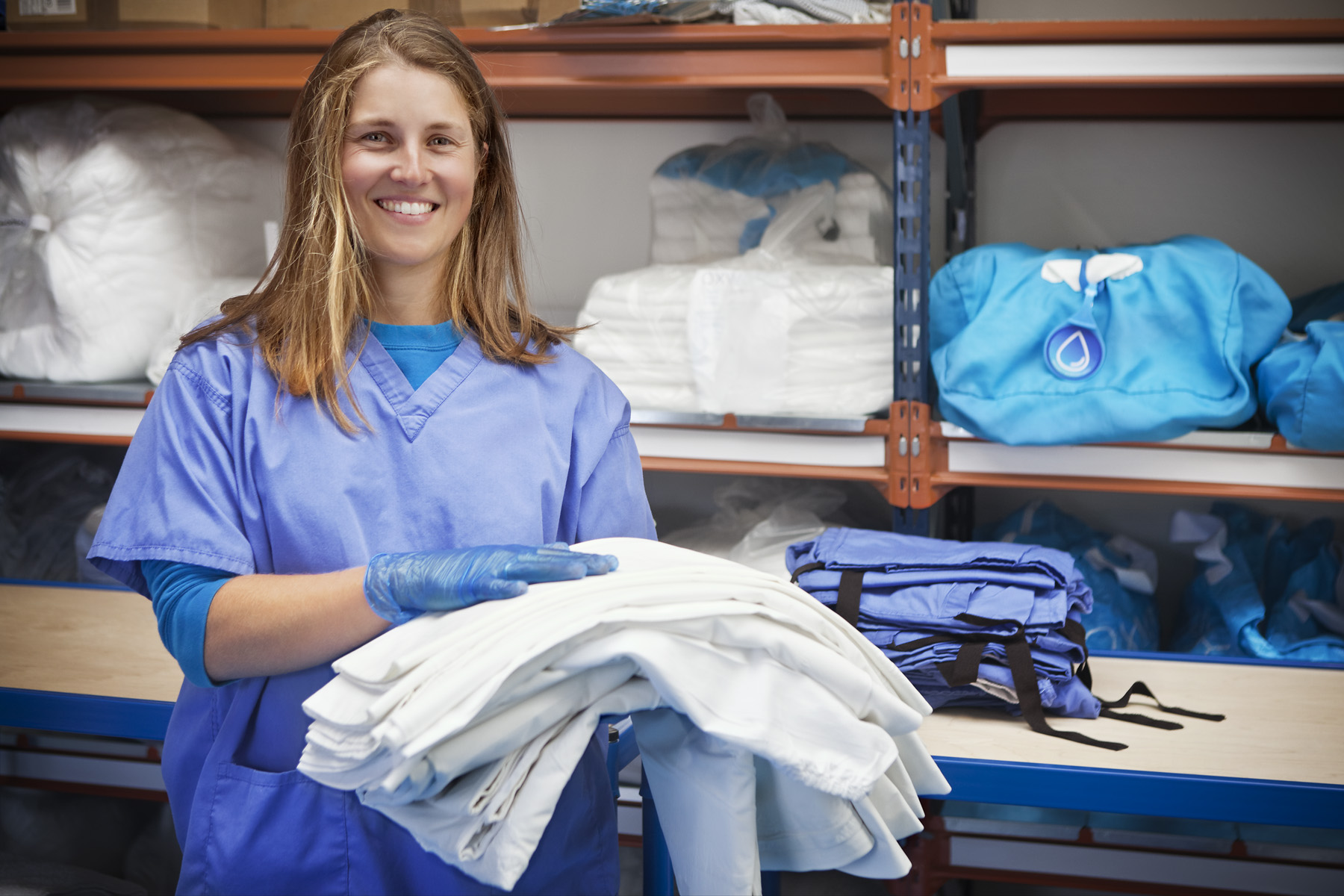
- HOME
- CULTURE
Green Heroes: Kyle Grant, Founder of Oxwash
Oxwash is a pioneer in sustainable laundry
By | 3 years ago
It’s time to drop your regular drycleaner. Oxwash founder Kyle Grant is shaking up the industry with sustainable first solutions

When was your green lightbulb moment?
In 2018 I founded Oxwash, born out of frustration from the perpetually broken washing machines in my Oxford college laundry. With a bike and a backpack, I started collecting and washing clothes for my peers, this quickly snowballed into a growing on demand laundry business as interest grew. During my research of the laundry industry, I visited the behind the scenes of a well-known commercial laundry, and what I saw was akin to a Victorian era sweatshop. Cramped, toxic environments with little regard for sustainable practices. After lifting the lid on the wasteful commercial laundry industry, we have made it our mission to build the future of laundry, aiming for a service with no environmental impact and world class results.
What green business practices are you most proud of?
Water Waste: Each 8kg wash cycle typically uses 50 litres of water per wash, we use 18 litres of water per 8kg wash so save 32 litres. We are also implementing water reclamation technology to allow us to recycle water between washes.
Microfibre Pollution: Traditional laundries and even machines we have at home don’t have filtration systems in place to prevent plastic pollution. With our filtration technology, we aim to filter over 1 million microfibres per every kg we wash, preventing plastic pollution of our water systems. Microfibres are a huge rising issue being found in our local water systems and in the fish we eat, and currently account for 1/3rd of all ocean plastic.
Toxic Solvents: Most laundries will use whichever detergent is cheapest and usually has high levels of toxicity, such as PERC. We use biodegradable detergents and emulsifiers that are automatically dosed depending on the weight of the wash. This prevents up to 25% excess chemistry being used.
CO2 pollution: Most laundries that offer collections/deliveries use vans as transport contributing to GHG emissions as well as local traffic. The e-cargo bikes we use have zero emissions and are able to manoeuvre around traffic rather than contributing. Each of our Cargo Bikes saves 6,700 KG of CO2 per year
What makes you feel positive about a sustainable future?
It’s great to see that sustainability is becoming more of a requirement than a luxury, driven by both consumer behaviour and conscious companies. Only a few weeks ago Bcorp announced that they reached the milestone of having 500 Bcorp companies in the UK alone. This shows that sustainability isn’t merely a passing trend but a recognised necessity to ensure longevity.
And what are the facts that make you fearful?
The unwillingness of traditional industry to change. Many archaic laundries are simply stuck in their ways, refusing to accept that without a concerted effort to move towards sustainable, low impact solutions, we won’t have a world left to wear clothes in!
The sheer number of plastic microfibres that are shed during the commercial laundry process terrifies me! Up to 1 million fibres can be shed during a single wash and the majority of these find their way into the water course and eventually up the food chain and into human consumption. A recent study showed that plastic microfibers are present within unborn foetuses, now if that isn’t terrifying, I don’t know what is.

Who is your own green hero?
Yvon Chouinard, the founder of Patagonia. I’m in awe of Yvon’s unwavering mission to build the most sustainable, ethical clothing brand on the planet. I think it’s testament to his unwillingness to compromise that Patagonia has evolved into a brand synonymous with responsible consumption within the fashion industry.
Can producing anything new really be called sustainable?
Yes! There are some truly amazing technologies evolving to enable us to produce in a low impact manner that could, in theory, continue forever. From clothes grown from mushrooms, to plastics fibres created from ocean plastic, there is always an impact but that impact can be managed with careful planning and the application of new technology.
Where do you source your materials?
Our biodegradable detergents are sourced from here in the UK, Northampton to be exact. We are proud to work with Ideal Man.
Name three other of your favourite brands who are doing the right thing:
Patagonia is leading the way in the fashion industry, they have truly considered how to make each aspect of their business better, from their famous ‘Don’t buy this jacket’ campaign to using recycled materials. On top of this, they have a self-imposed Earth tax, 1% for the Planet, which they donate to environmental non-profits.
Finisterre is another leader in the fashion industry and have been pioneering sustainable fashion in the UK since 2003. Having achieved BCorp certification they are a real inspiration for companies that want to be obsessive about the impact of their products.
All birds is obsessive about measuring – they measure the impact and emissions of absolutely everything that goes into their shoes, from the raw materials right the way through to the end of life.
Should we be green shaming the brands/companies who are doing nothing to change their ways?
That’s a tough one. I much prefer to lead by example and educate than to shame. We are leading the sustainable laundry revolution and it has been amazing to already see so many laundries and dry cleaners adopt sustainable practices in their own operations.
What are the biggest challenges in running a sustainable business?
The challenges are endless, but the biggest challenge is never to compromise on our sustainability mission to benefit our bottom line. There are many instances where compromising on sustainability could benefit our bank balance, but we are determined never to compromise.
What advice can you give to other businesses who are wanting to do better?
Strive for the best but know it’s a journey and so beat yourself up for not reaching your goals sooner. We all start somewhere and as long as you’re honest and realistic with yourself and your stakeholders that’s the most important thing. Keep asking how you can improve at each step of the business.
Will you sign up to going carbon neutral (or even negative) by 2050?
Hell yes! We are committed to achieving net zero carbon emissions by 2025, it’s going to be a tough challenge, but I am confident that by developing our own patented technology we are going to be able to become the world’s first carbon neutral commercial laundry!
Three things we should all, as individuals, be doing to help in the climate change fight?
- Being aware or keeping track of how much electricity we actually use on a daily basis. Then start taking baby steps, get the bag for life, don’t leave your phone charger on when you’re not using it, turn the tap off while you’re brushing your teeth. Small changes add up!
- Walk or cycle more. At Oxwash, we practically live on bikes. Not only does this save the nasty GHG emissions from the car journey not taken but walking and cycling are extremely beneficial for your physical and mental health. We’re big advocates!
- Wash cold, or even better, don’t wash at all and let Oxwash take care of your laundry!
To find out more about Oxwash’s sustainable practices, click here.
MORE GREEN HEROES:



